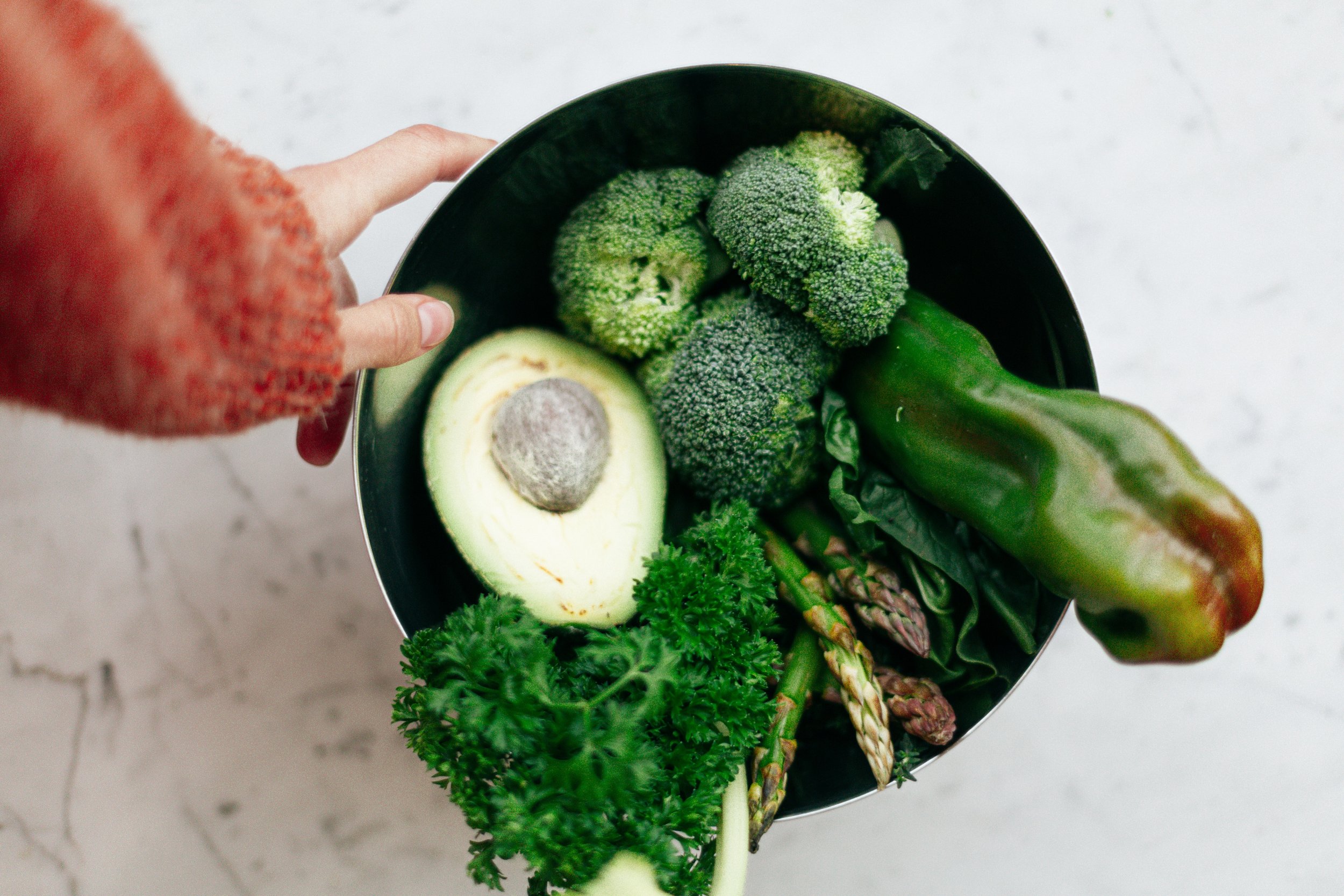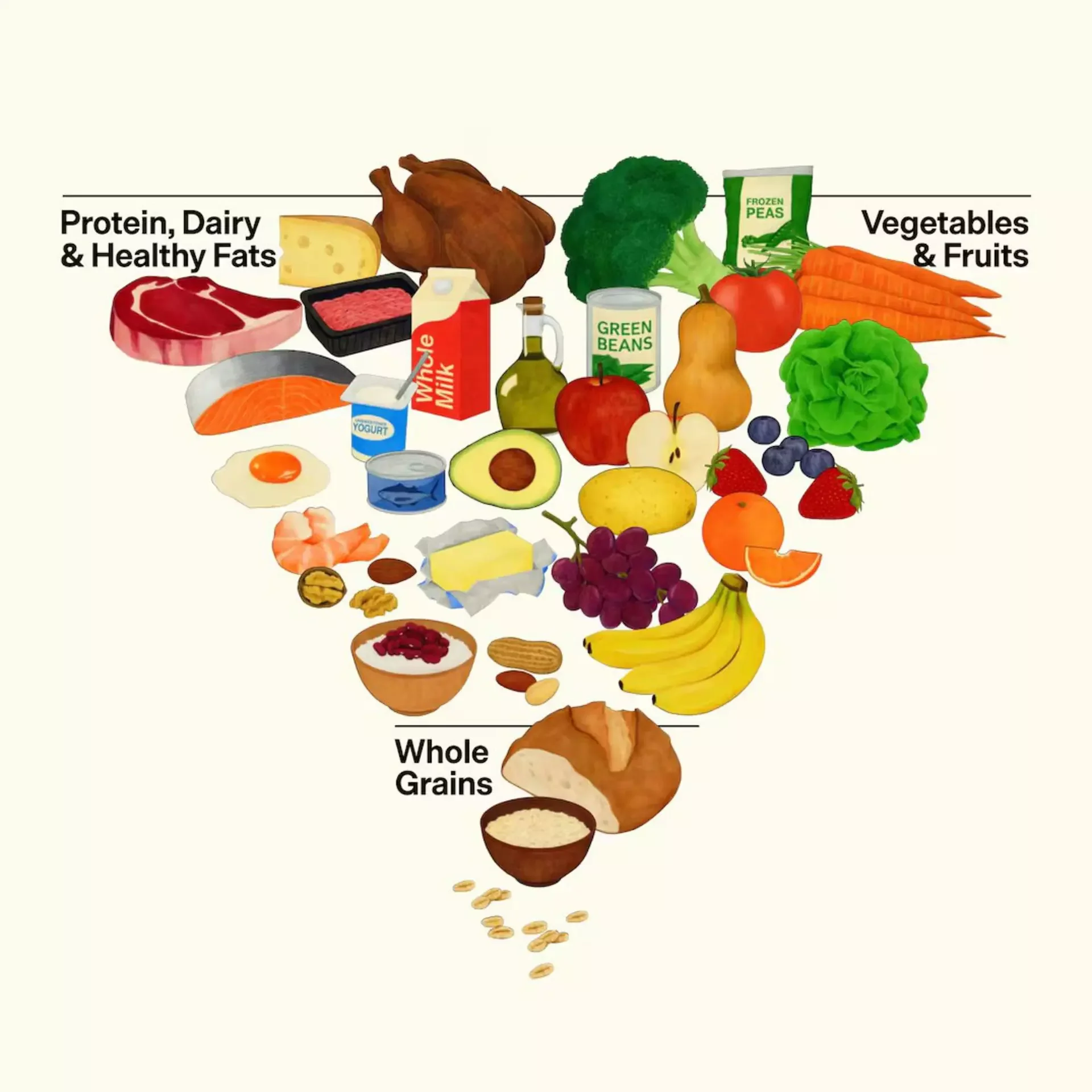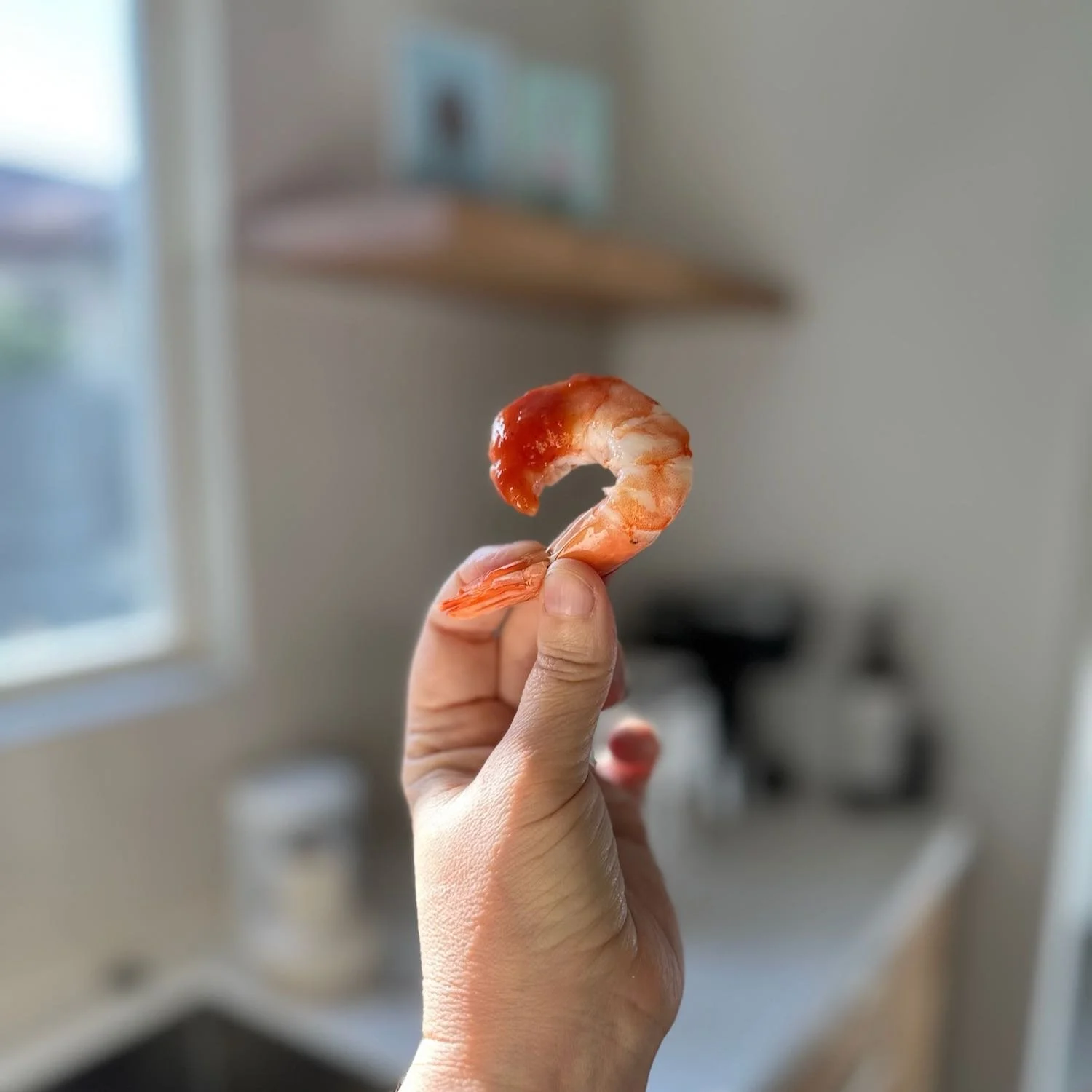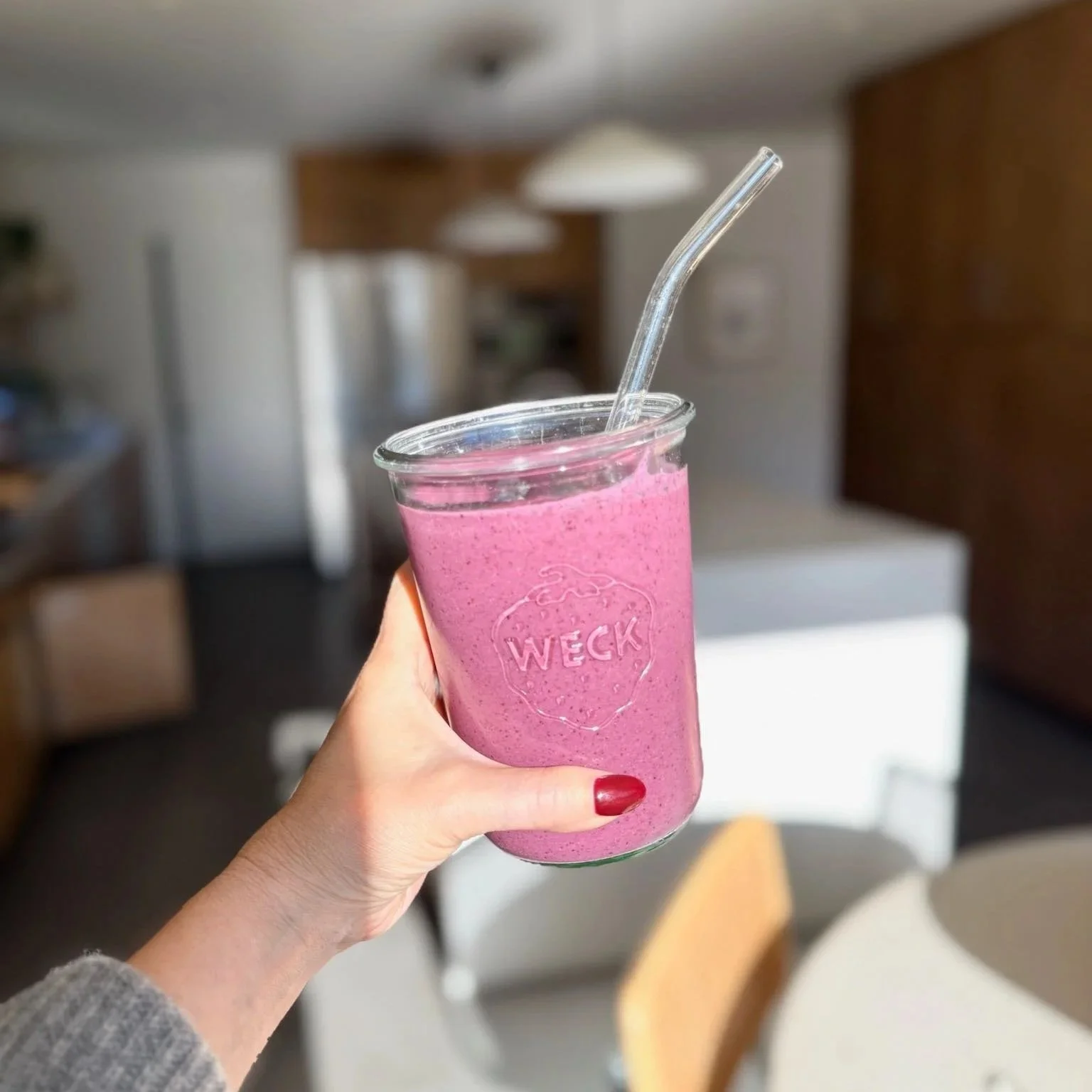The 3 Near-Magic Foods You Need To Eat Every Single Day To Stay Glowy And Healthy
by Carolyn Firestone
When it comes to diet, there are oh so many articles sounding the alarm on what not to eat. Whether warning us of the many sins of sugar or the perils of processed goods, we hear a lot about the foods that aren’t doing our bodies any nutritional favors.
But what about the ones that are?
I recently had the pleasure of talking to three savvy dietitians who each made the point that good nutrition should be about what you add and not just what you take away.
In that spirit, I want to hear more about the hidden powers of the food we eat. I’m talking the one vegetable that holds the key to a longer lifespan. Or the magic ingredient that ends the horrors of constipation.
What are the foods we should eat every day to unlock our healthiest life?
Here are the three that top the list for Dr. Mary Claire Haver, an OBGYN and expert in women’s health as well as the creator of The Galveston Diet.
1. AVOCADOS
Despite their tendency to get glammed up on Instagram while sunbathing on a slice of toast, avocados are 100% worth their superfood status.
From illuminating our skin to boosting our immunity, avocados carry a treasure chest of nourishment - the kind you want to consume on a daily basis.
According to Galveston, one study even “discovered strong links between eating avocados and having a higher HEI diet quality score, more nutrients, lower body weight, BMI, and waist circumference, higher HDL-C values, and a lower risk of developing the metabolic syndrome.”
I won’t bore you with the loooong list of vitamins and nutrients they provide, but one of the wonderful things about avocados is their “healthful, beneficial fats.”
“For every cell in the body, fat is necessary. Eating wholesome fats promotes the health of the skin, improves the absorption of nutrients, including vitamins and minerals that are fat-soluble, and even strengthens the immune system,” said Haver.
Adding the incredibly productive fats that are present in avocados to our diet helps increase satiety (a satisfied feeling of fullness). And it likely does so without contributing to the unhealthy weight gain that can occur around the waistline, especially as we age.
“Women who included an avocado in their meal each day saw a decrease in visceral abdominal fat, the hard-to-target fat linked to higher risk, as well as a decline in the ratio of visceral to subcutaneous fat, which suggests that the fat has been redirected away from the organs,” said Haver. A study from the University of Illinois further noted that the belly benefits of the avocado-a-day method includes improving gut health.
Finally, consuming the sort of fat avocados are rich in between meals helps slow “the breakdown of carbohydrates, which aids in maintaining stable blood sugar levels,” said Haver. So feel free to smother it over pretty much anything you’re enjoying at snack time.
2. LEGUMES
This is one of those recommendations that made me jump for joy, as I have long been a believer in the satisfying deliciousness of a good bean dish. From hearty-ing up soups and salads to even occasionally replacing the noodles in your pasta recipe (I swear, it’s delicious. This is NOT a zoodles-style ploy).
But in addition to being filling and versatile, legumes are brimming with antioxidants. The ones found in beans and legumes “help prevent cell deterioration, combat disease, and slow the aging process,” according to Haver. In addition, their fiber content (which women need a whole lot of) aids the digestive tract and “may even assist to prevent digestive malignancies.”
“Legume consumption has been associated with a reduced risk of colorectal cancer, and eating soybeans and soy-based products in particular is associated with reduction in LDL cholesterol levels,” said Haver.
When talking legumes, Haver can spout off a range of epidemiological studies and controlled trials which suggest that replacing meat with legumes several times a week can have a positive impact on lifespan, blood sugar control, and cardiovascular disease risk.
The magic of beans may even help with weight control. Haver notes a particular control trial published in the Journal of the American Medical Association, where participants were asked to add one cup of beans a day to their dietary intake for three months. The group who added beans were not asked to take any other foods out of their diet or to count calories, and still, they “saw an average weight loss of 5.7 pounds, and their measures of blood sugar control improved.”
Some of Haver’s favorite legumes include:
Chickpeas, also called garbanzo beans
Peanuts
Black beans
Green peas
Lima beans
Kidney beans
Black-eyed peas
Navy beans
3. GREENS (AND ERRR…ONE WHITE)
In response to the frequently asked question, “What are the best foods to eat?” Haver recently took to Instagram to feature her “top 5 vegetables.” I know, I know, this isn’t just a SINGLE food we’re telling you to eat every day, but as Haver herself points out, “when it comes to adding antioxidants to your diet, no one food or food group should be your sole focus. Instead, be sure to incorporate a variety.” And who doesn’t want a little variety in something they plan to eat every day?
So without further ado, here are the predominantly green vegetables to pack onto your plate on a daily basis:
1. Dark leafy greens: Greens are exceptionally high in Vitamin C, beta carotene, calcium, iron, potassium, and folate. And they carry a nice amount of fiber. Their benefits include helping to prevent heart disease, fight cancer, and promote bone health.
2. Lettuce or “salad greens”: These typically raw power players contain bioflavonoids and antioxidants that help “prevent cancer-causing cell damage” as well as Vitamin A and beta carotene which have been linked to better heart health.
3. Cauliflower: In addition to being super easy to season to your liking, cauliflower carries Vitamin C, folates, phytochemicals, and fiber, leading Haver to crown it the veggie kingdom’s “jack of all trades.”
4. Broccoli: Most people have a love it or hate it relationship with broccoli, but falling into the former category comes with huge gains. Broccoli holds many a superpower, one notably in the form of sulforaphane, a substance shown to reduce the spread of carcinogens and cancerous tumors. In addition to other cancer-fighting properties, its Vitamin K content aids with bone health.
5. Brussels sprouts: I’ve been thankfully charmed by the cuteness of Brussels sprouts from a young age. Yet, these little round bundles come with some real grown up benefits that include antioxidants, Vitamin C, and Vitamin A. Ingredients in Brussel Sprouts help protect from issues that range from cataracts to cancer. Their potassium content can help to lower blood pressure. And their fiber content further earns them extra high marks.
Carolyn firestone
Carolyn is a freelance writer and editor. Her favorite thing to do is to write about her favorite things, especially when they have even the slightest chance of making someone else’s something (mood, relationship, travel plans, or toiletry kit) a little better. You can find more of her articles here.
At The Candidly, we try a lot of stuff so you don’t have to. We only recommend things we truly love, and that we think you’ll love, too. All products are chosen independently by our creative team, and all details reflect the price and availability of products at the time of publication. If you buy something we link to, The Candidly may earn a commission.
We have to eat.
This article is for informational purposes only. It is not intended to be used in place of professional advice, medical treatment, or professional care in any way. This article is not intended to be and should not be a substitute for professional care, advice or treatment. Please consult with your physician or healthcare provider before changing any health regimen. This article is not intended to diagnose, treat, or prevent disease of any kind. Read our Terms & Conditions and Privacy Policy.











